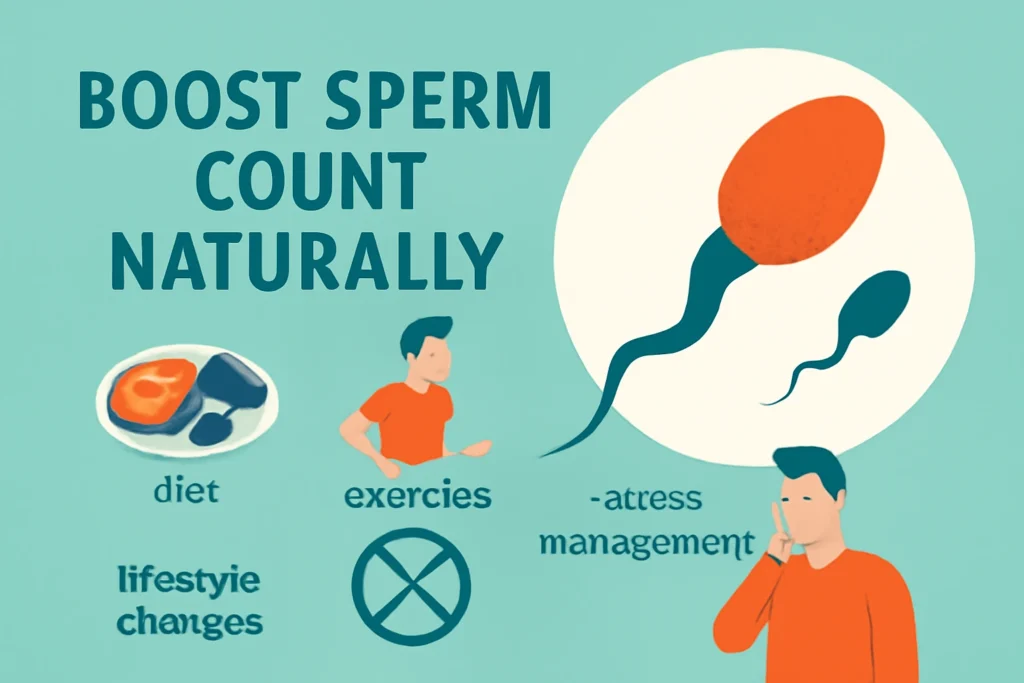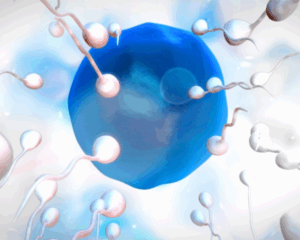
Prolistem for Non-Obstructive Azoospermia: A Comprehensive Guide
Prolistem for non obstructive azoospermia, Non-obstructive azoospermia (NOA)

As a man, maintaining good reproductive health is vital for overall well-being and for planning a healthy family in the future. If you’ve been trying to conceive but have struggled with low sperm count, you might be looking for natural ways to improve sperm quality and quantity. Fortunately, there are several lifestyle changes, dietary adjustments, and habits that can help boost sperm count naturally, without the need for medical intervention.
In this blog post, we will explore easy-to-follow tips and habits that can help you increase sperm count naturally, backed by scientific research and in line with Google’s E-E-A-T (Expertise, Authoritativeness, Trustworthiness) guidelines. All advice is simple, practical, and scientifically supported to help you on your journey to better reproductive health.
What is Sperm Count and Why Does it Matter?
The Factors that Affect Sperm Count
How to Boost Sperm Count Naturally
Eat a Balanced Diet
Exercise Regularly
Manage Stress
Get Enough Sleep
Avoid Toxins and Chemicals
Maintain a Healthy Weight
Avoid Excessive Alcohol and Smoking
Stay Hydrated
Take Supplements (with Caution)
Conclusion: Take Charge of Your Fertility
Sperm count refers to the number of sperm present in a man’s semen. A healthy sperm count is essential for conception because the sperm must swim through the female reproductive system to fertilize an egg. If your sperm count is low, it may be more difficult to conceive, but it doesn’t mean it’s impossible.
A normal sperm count ranges between 15 million and 200 million sperm per milliliter of semen. Anything below this range is considered low. Low sperm count can result from various factors, including poor diet, lack of exercise, stress, and environmental factors. Therefore, improving sperm count naturally is a step in the right direction for anyone hoping to improve fertility.
Before diving into how to boost sperm count naturally, it’s important to understand the factors that can impact your sperm count. Some of these factors are within your control, while others may require more specialized medical advice. Here are the most common factors:
Diet and Nutrition: What you eat plays a significant role in sperm quality. A diet that lacks essential vitamins and minerals can negatively impact sperm production.
Exercise and Physical Health: Being sedentary or having an unhealthy weight can reduce sperm count. On the other hand, regular physical activity improves fertility by enhancing blood circulation and reducing stress levels.
Stress: Chronic stress can interfere with hormone levels that affect sperm production. Finding ways to manage stress is crucial for sperm health.
Environmental Factors: Exposure to toxins, chemicals, and pollutants can lower sperm count. This includes excessive heat (such as from hot tubs), exposure to pesticides, and working with chemicals.
Sleep: Poor sleep affects hormone levels, including testosterone, which plays a key role in sperm production.
Age: As men age, sperm quality and count tend to decline, although this is generally a gradual process.
Now that we know the factors that can influence sperm count, let’s dive into some of the natural ways you can boost your sperm count and improve your overall reproductive health.
What you eat has a profound effect on your sperm health. A healthy diet full of essential vitamins, minerals, and antioxidants can support sperm production and improve sperm quality. Here’s what to focus on:
Zinc-rich foods: Zinc plays a key role in sperm production and motility. Foods such as oysters, red meat, poultry, beans, and nuts are excellent sources of zinc.
Antioxidants: Vitamins C and E, along with other antioxidants, can protect sperm from damage by neutralizing free radicals. Include foods like citrus fruits, berries, spinach, and bell peppers in your diet.
Omega-3 Fatty Acids: These healthy fats improve blood flow, which can enhance sperm production. Sources include fatty fish like salmon, walnuts, and chia seeds.
Folic Acid: Studies show that folic acid, found in leafy green vegetables, legumes, and fortified cereals, may increase sperm count and motility.
Vitamin D: Adequate vitamin D levels have been linked to higher sperm counts. Foods like egg yolks, fortified milk, and exposure to sunlight can help maintain healthy levels of vitamin D.
Exercise is crucial for overall health and also for improving sperm count. Regular physical activity helps maintain a healthy weight, improves circulation, and reduces stress levels, all of which contribute to better sperm health.
Moderate exercises such as jogging, cycling, swimming, or strength training can improve sperm count. However, it’s important to avoid overdoing it. Excessive exercise, especially high-intensity workouts, can have the opposite effect and reduce sperm count.
Chronic stress can elevate cortisol levels, which in turn can negatively affect testosterone and sperm production. Managing stress is vital for maintaining healthy hormone levels and improving sperm count.
Here are some ways to reduce stress:
Practice mindfulness and meditation: These techniques help lower cortisol levels and improve mental well-being.
Engage in physical activity: Exercise is a natural stress reliever.
Relaxation techniques: Deep breathing exercises or yoga can help manage stress effectively.
Quality sleep is essential for maintaining hormone balance, especially testosterone, which is crucial for sperm production. Aim for 7-9 hours of sleep per night to help regulate hormone levels and support sperm health.
Exposure to harmful toxins and chemicals can hurt sperm count. These include:
Pesticides and industrial chemicals: Limit exposure to environmental toxins by avoiding areas with heavy pollution.
Phthalates: Found in plastics, these chemicals can interfere with sperm production. Reduce your exposure by avoiding plastic containers, especially when storing food.
Excessive heat: Prolonged exposure to high temperatures, such as from hot tubs or tight clothing, can reduce sperm count. Opt for loose-fitting underwear and avoid prolonged heat exposure.
Obesity is linked to lower sperm counts due to hormonal imbalances. Losing weight through a healthy diet and exercise routine can help improve sperm quality. Additionally, maintaining a healthy weight can prevent conditions like varicocele (enlarged veins around the testicles), which is another factor that can reduce sperm count.
Both alcohol and smoking are detrimental to sperm health. Excessive alcohol consumption can lower testosterone levels, impair sperm motility, and reduce sperm count. Smoking is linked to decreased sperm quality, DNA fragmentation, and lower motility.
Limiting or quitting smoking and alcohol consumption can significantly improve sperm count and overall fertility.
Drinking enough water is vital for maintaining sperm health. Dehydration can lead to reduced sperm volume, which can affect the overall chances of conception. Aim to drink at least 8 glasses of water per day to stay hydrated and support healthy sperm production.
While a balanced diet should provide most of the nutrients your body needs, certain supplements can help boost sperm count. Popular supplements for male fertility include:
Folic Acid: Often combined with zinc, folic acid supplements have been shown to increase sperm count.
Coenzyme Q10 (CoQ10): This antioxidant helps protect sperm from oxidative stress and supports energy production in cells.
Ashwagandha: An adaptogen herb, ashwagandha may improve testosterone levels and sperm count.
However, it’s important to consult with a healthcare professional before taking any supplements to ensure they are safe and effective for your specific situation.
Improving your sperm count naturally is achievable by making simple lifestyle changes. Eating a balanced diet, exercising regularly, managing stress, getting sufficient sleep, and avoiding toxins are all effective ways to enhance sperm health. Remember, while lifestyle factors can help, it’s essential to consult with a doctor if you suspect any underlying health issues that may be affecting your fertility.
By following these tips, you can take control of your fertility journey and boost your chances of conception naturally. Make these changes today for a healthier tomorrow.

Prolistem for non obstructive azoospermia, Non-obstructive azoospermia (NOA)

Introduction Male infertility, especially caused by azoospermia, affects

We are proud to have participated in the

Introduction: A New Hope in Male Infertility Treatment
Prolistem®, a patented male fertility formula for azoospermia and zero sperm count, has not been evaluated by the Food and Drug Administration. This product, designed to support sperm production restoration and male infertility treatment, is not intended to diagnose, treat, cure, or prevent any disease.
PROLISTEM® is a Patented Formula
Copyright © 2025 Prolistem®